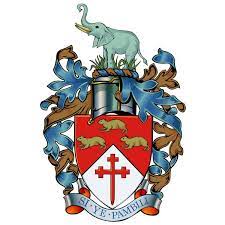The Bulawayo City Council (BCC) has revised its proposed 2022 budget from ZWL$24,7 billion to ZWL$23,86 billion after taking into account residents’ concerns that levels of increase from the current budget in use was too high.
BCC had proposed a 216 percent projected average tariff increase for 2022, from ZWL$5 ,332,870, 000 in 2021 to ZWL$24,741,154, 503.
The proposed budget was rejected by most residents who said they could not afford it given the country’s tough economic situation.
Presenting the 2022 budget at council chambers Thursday, Chairperson of the Finance and Development Committee, Councillor Tawanda Ruzive, proposed that the revised total budget for 2022 be pegged at ZWL$23,863,515,157.
“Residents shared their views on the budget proposals and what came out of the deliberations was the need to improve service delivery. However many felt that the level of increases were unaffordable. In crafting this budget the views of the residents were taken aboard. We are after all, a listening council,” he said.
The revised proposed budget for 2022 will comprise a revenue budget of ZWL$15,957,224,900 and a capital budget of ZWL$7,906,290,257.
Ruvive noted that, “the new 2022 budget proposed to increase tariffs by varying percentages as opposed to a blanket increase, as was done in the past.”
“The overall average increase will be 200 percent down from the 216 percent. Compared with 2021 budget increases of 421 percent. The 2022 budget increase in tariffs have been reduced to an average of 200 percent,” he said.
The finance chairperson said for example, the rates for domestic properties will increase by 150 percent whereas non domestic property rates will increase by 177 percent.
“Water charges for domestic consumption will increase by 150 percent while water for non-domestic use will go up by 180 percent. Waste water charges will increase by 150 percent for both domestic and non-domestic users,” Ruzive said.
“Domestic charges for solid waste management (which includes refuse removal) will go up by 150 percent and for non-domestic it will go up by 160 percent.”
Ruzive said charges such as admission fees to stadia and swimming pools, hire of council facilities, patient fees for use of an ambulance, cessation fees and similar charges classified as fees will go up by 450 percent.
“Shop licences, liquor licences, garage licences, trading permits, route approval, development permits and inspection fees classified as licences will increase by 450 percent. Council rented properties will increase by 250 percent. Sale of pit sand and precast products will increase by 626 percent. The full list of council tariffs will be available for inspection at the city hall offices during the objection period,” he said.
Budget allocation which will be available when the national budget is announced will be utilised on the following projects, wards with high levels of poverty (50 percent), wards with little infrastructure or territory (30 percent) and wards with high population density (20 percent).
The chairperson noted that in crafting the 2022 proposed budget, the city used priorities set in the 2021 budget.
TABLE A
| PRIORITY | SERVICE | |
| 1 | WATER | |
| 2 | HEALTH | |
| 3 | SEWERAGE | |
| 4 | HOUSING | |
| 5 | ROADS | |
| 6 | EDUCATION | |
| 7 | PUBLIC LIGHTING | |
| 8 | SOCIAL SERVICES | |
| 9 | FIRE & AMBULANCE | |
The budget is expected to adequately fund these priority services.
The Finance chairperson said several factors notably the Covid-19 pandemic, black market rates and high prices of goods affected the 2022 budget.
“The exchange rate movement affected the value of our currency as suppliers priced their products using the black market exchange rates which were above the reserve bank auction rates by 100 percent or more. Prices of basic goods continued increasing,” he said.

